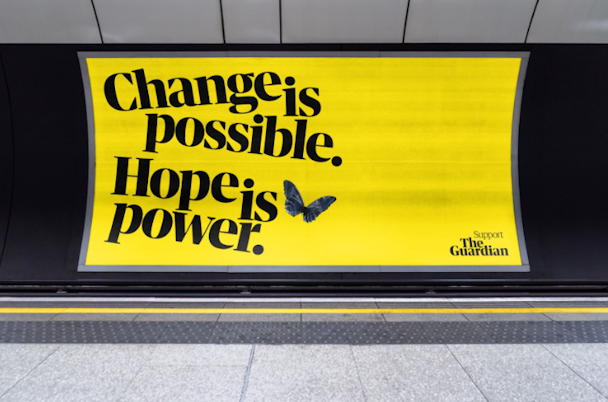The Guardian reinforces climate credentials with fossil fuel ad ban
The Guardian has added weight to its environmental credentials by announcing that it will no longer accept ads from fossil fuel extracting firms.

The Guardian reinforces climate credentials with fossil fuel ad ban
Acting chief executive Anna Bateson (soon to be replaced by neuroscientist Annette Thomas) and chief revenue officer Hamish Nicklin issued a joint statement reading: "Our decision is based on the decades-long efforts by many in that industry to prevent meaningful climate action by governments around the world."
It is not clear what impact the move will have on the company's revenue, and some observers have questioned just how much fossil fuel ad money the environmentally-conscious title takes. The Guardian wouldn't comment on the value of the media but The Drum understands it is valued in the region of £500,000 a year.
What is known is that advertising makes up 40% of Guardian Media Group revenue and the fossil fuel industry is a significant investor in UK print.
The Guardian, which broke even last year, caveated that it was not in a position to turn away ad spend from brands with a "significant carbon footprint, such as cars or holidays" while the "media industry’s business model remained in crisis".
But its fossil fuel ban builds on a change it has already introduced to its editorial coverage of climate change. Last year it updated its style guide (the guidebook for its reporters) to change the wording around "the climate emergency" which it has branded as the “most important challenge of our times".
The world's biggest fossil fuel extractors and polluters will now no longer be able to advertise in The Guardian.
The title is following the lead of Swedish newspaper Dagens ETC which said it would reject such ads four months ago. There have also been growing calls for creative agencies to stop working with these businesses.
Mel Evans, senior climate campaigner for Greenpeace UK, branded the move a "watershed moment" and said the title deserved credit for moving to "end the legitimacy of fossil fuels".
“For too long fossil fuel giants like BP and Shell, who are causing our climate emergency, have been able to get away with greenwash advertising while investing 97% of their business in oil and gas.
“Other media outlets, arts and sports organisations must now follow suit and end fossil fuel company advertising and sponsorship.”
Andrew Rajanathan, global social director at Zenith, media buyers are adapting because "the line between what constitutes advertising and editorial is now becoming a prominent issue. Where a publisher draws the line is a challenge."
Publishers are not just judged on what they cover and how they do it, but also who supports them via advertising. Rajanathan points out that advertisers in oil and gas will still want to provide their point of view on select issues (like electric vehicles) and respond through a mixture of PR and media.
The spend will likely be spread among the remaining premium news titles for now. But has The Guardian poisoned the well for the rest? Underlining the scale of the fossil fuel advertising challenge is a lawsuit from ClientEarth. In December, the activist group issued a legal complaint against BP, calling for its global advertising campaign, which talks up the potential applications of green energy, to be banned for "misleading consumers".
Despite BP's biggest advertising drive in a decade focusing wholly on low carbon energy, the complaint said that "96% of the company’s annual spend on oil and gas".
The ‘Keep Advancing’ and ‘Possibilities Everywhere’ ad campaigns were accused of positioning the brand as the solution to the climate emergency while it largely operates business as usual.
ClientEarth climate accountability lead Sophie Marjanac said: “BP is spending millions on advertising to give the impression that it’s racing to renewables, that its gas is cleaner, and that it is part of the climate solution.”

